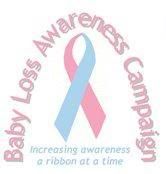When Someone You Love Dies...
Along the Journey of Grief
You can expect that: Your grief will take longer than most people think. Your grief will take more energy than you would have ever imagined.
Your grief will involve many changes and be continually developing. Your grief will show itself in all spheres of your life: psychological, social, physical, and spiritual. The intensity of your grief will depend on how you perceive the loss.
You will grieve for many things both symbolic and tangible, not just the death alone. You will grieve for what you have lost already and for what you have lost in the future as well.
Your grief will entail mourning, not only for the actual person that you have lost, but also for all of the hopes, dreams, and unfulfilled expectations that you held for and with that person, and for the needs that will go unmet because of their death. Your grief will involve a wide variety of feelings and reactions, not just those normally associated with grieving, such as depression and sadness. The loss will resurrect old issues, feelings, and unresolved conflicts from the past.
- You will have some identity confusion as a result of this major loss and such feelings may be a new and puzzling experience for you;
- You may have a combination of anger and depression, including feelings of irritability, frustration, annoyance, or intolerance;
- You will feel some anger and guilt, and may spend a significant amount of time searching for ways that you could have changed or prevented the death;
- You may have a lack of self-concern;
- You may experience grief spasms, acute upsurges of grief that occur suddenly with no warning;
- You will have trouble thinking (memory, organization and intellectual processing) and making decisions;
- You may feel as though you are going crazy;
- You may be obsessed with the death and preoccupied with the deceased;
- You may begin to search for meaning and may question your religion and/or philosophy of life;
- You may find yourself acting socially in ways that are different from before; or
- You may find yourself having a number of physical reactions.
Society will have unrealistic expectations about your mourning and may respond inappropriately to you. You may find that there are certain dates, events, and stimuli that bring upsurges in your grief feelings. Certain experiences later in life may resurrect intense grief for you temporarily.
In summary, your grief will bring with it, depending upon the combination of factors above, an intense amount of emotion that will surprise you and those around you.
Most of us are unprepared for the global response we have to a major loss. Our expectations tend to be too unrealistic, and, more often than not, we receive insufficient assistance from friends and society. Your grief will not only be more intense than you expected, but it will also be manifested in more areas and ways than you ever anticipated.
You can expect to see brief upsurges of it at anniversary and holiday times, and in response to certain stimuli that remind you of what you have lost (songs, etc.).
Your grief will be very idiosyncratic and dependent upon the meaning of your loss, your own personal characteristics, the type of death, your social support, and your physical state.
~~from Grieving: How to Go on Living When Someone You Love Dies by Theresa A. Rando
Copyright 2002 Theresa A. Rando























































<< Home